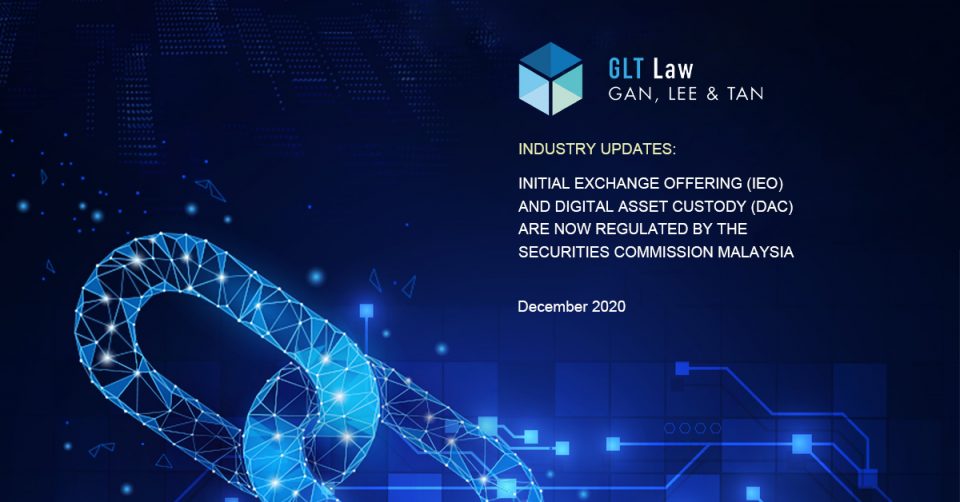- Mon-Fri 09:00-18:00
- +603 7621 4447
- [email protected]
Should I Invest In Preference Shares?

Safeguarding Your Personal Data and Privacy by GLT Law
February 21, 2019
Media Statement: GLT Law Wins Top Legal Honour
April 4, 2019Should I Invest In Preference Shares?
Traditionally, investors invest in a company to become a co-owner (a.k.a ordinary shareholder) of the company. Depending on his shareholding in the company, he can influence or even control the decision-making of the company.
There are a number of key differences between ordinary shares and preference shares. This article aims to highlight the key elements that an investor should keep in mind when dealing with preference shares.

Credits: Tenor
First and foremost, it is important to note that preference shares function like a debt instrument (e.g. loan) rather than equity or, in another word, ownership.
Preference shareholders are NOT the owner of the company. By analogy, the investor is giving a loan to the company and the company issue preference shares to the investor giving him certain preferential rights. For example:
- Rights to fixed dividends
- Rights to convert into ordinary shares; and
- The rights to receive winding-up proceeds before ordinary shareholders
Generally, the investor’s objective is to make a decent profit when he exits the investment in a few years’ time.
The question is – should investors consider preference shares?
Why Preference Shares?
(1) More Secured
Preference shares have a lower risk than ordinary shares.
In the unfortunate event of liquidation, winding up, dissolution, cessation of business of the company or return of capital, preference shareholders shall be paid out of the proceeds in priority to any amount payable in respect of the ordinary shares.
In other words, preference shareholders will be paid BEFORE the ordinary shareholders.
This characteristic is important to ensure that preference shareholders have priority of claim against the company for the dividends and redemption sum payable in respect of the preference shares. On that basis, preference shares are more secured because ordinary shareholders will only be entitled to claim the remaining proceeds after preference shareholders are duly paid of the dividends and redemption sums.
In some cases, the investors can also require the promoters to provide a personal guarantee to guarantee the payment by the company of dividends and redemption sums in respect of the preference shares. The personal guarantee further lowers the default risks and hence making the preference shares more attractive for investors.
(2) Fixed Dividend (subject to profit)
Declaration of dividends is a discretionary power of the board of directors of the company. The board can decide when and how much a dividend is a payable subject only to the sufficiency of profit for such a declaration.
For ordinary shareholders, they can only wait and hope that the company will make enough profit and declare a dividend (at the discretion of the board), which can be regular or irregular. It is important to bear in mind that the board does not have any statutory obligation to declare and pay the dividend, and can opt to keep all the profit for working capital purposes. If there is no payment of dividend, ordinary shareholders can only expect financial gains when he exits the investment by selling off his shares.
Unlike ordinary shares, the dividend of preference shares can be fixed either at:
- A fixed amount;
- The fixed percentage of the principal investment sum (i.e. the issue price); or
- The profit of the business (e.g. x% of the profit after tax of the company).
The dividend can be cumulative or non-cumulative.
A cumulative dividend means the type of dividend which if it is accrued but unpaid in respect of the preference shares, it will be treated as arrears and will be carried forward to subsequent years and accumulated until it is fully paid.
A non-cumulative dividend means the type of dividend which if it is accrued but unpaid in respect of the preference shares, the preference shareholders do not have the rights to claim any of the unpaid dividends in the future. The unpaid dividend will not be accumulated.
The caveat for payment of dividend is that dividend can only be paid out of the profit of the company.
If the company does not have sufficient profit (either from profit or retained earnings), the company is not legally able to declare and pay the dividend, even if it is fixed and agreed under the terms of preference shares.
Fixed and cumulative dividends can be attractive for some investors who prefer more certainty of returns in their investment.
(3) Conversion Rights
Some investors expect to exit their investment with a 2x-5x return, especially for investment into start-ups or technology firms.
Preference shares which do not come with conversion rights may not be the right instrument for such investors.
Conversion rights allow preference shareholders to convert their preference shares into ordinary shares based on an agreed conversion formula. Once converted, they become ordinary shareholders. Meaning they also become co-owner of the business who can enjoy the potential appreciation in the value of the business.
Conversion formula can be based on a fixed ratio. For example, every 10 preference shares can be converted into 1 ordinary share, or based on the fair value of the business.
For example, instead of accepting cash from the preference shareholders upon exercising the conversion rights, the company accepts the preference shares as issue price/consideration for the issuance of the new ordinary shares. The number of new ordinary shares to be issued will depend on the then market value or fair value of the business. The valuation of the business is best conducted by an independent valuer, whether appointed by the board or jointly by the board and the investors.
Of course, the business founders may not like the idea that preference shareholders can also become co-owners just because of the “loan” given to the company. Hence, preference share with conversion rights may have a lower dividend rate. This is as some founders would argue that the preference shareholders have had the benefit of the conversion rights. Such commercial terms are entirely subject to the negotiation of the parties.

Credits: Tenor
Sounds good? Well before investing in preference shares, you should also consider the following:
(1) No Control/Voting Rights
Preference shareholders have NO control over the decision-making of the business. Nor do they have any voting rights at any general meeting of the company.
Save for very limited types of resolutions (e.g. winding-up resolution or resolution which adversely affect or alter the rights of preference shareholders), preference shareholders do not have voting rights at any general meeting of the company.
(2) No Upside (unless can convert)
Investors are only entitled to the agreed dividends and redemption sum – i.e. principal investment sum – if the preference shares do not come with conversion rights. They will not be able to benefit from the appreciation in value of the business. In other words, there will be no upside in terms of return of investment.
Having said that, such an investment instrument could be suitable for more conservative investors. Those who prefer higher dividend yields with certainty in repayment despite that return of investment may not be fantastic.
Summary
Preference shares can be the right investment instrument for risk-takers or risk-averse investors. But this depends on the terms of the preference shares. Again, there is no one size fits all terms that are suitable for every type of investor.
If you intend to invest in preference shares, you better educate yourself of the above.
Good luck!
*****



